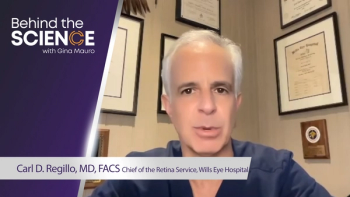
Thought leaders from across the ophthalmology community share their perspectives on the most pressing issues facing the profession today. The areas of concern range from physician burnout to patient volume to costs, and more.

Thought leaders from across the ophthalmology community share their perspectives on the most pressing issues facing the profession today. The areas of concern range from physician burnout to patient volume to costs, and more.

Experts highlight their biggest takeaways from the 2023 Genitourinary Cancers Symposium.
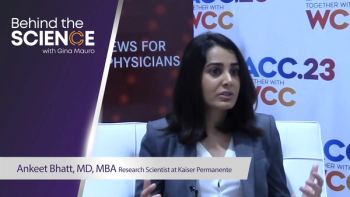
During their time conducting on-site interviews on the floor at the American College of Cardiology’s 72nd Annual Scientifc Sessions with Together With the World Congress of Cardiology, HCPLive asked a half dozen expert for their opinion on the single most important piece of data to come from the meeting.

Recently appointed as Medical Director of Oncology at Thyme Care, Samyukta Mullangi, MD, MBA, speaks with The American Journal of Managed Care on what patients with cancer should expect from value-based care (VBC) providers, as well as recommendations for VBC providers when expanding to new communities.
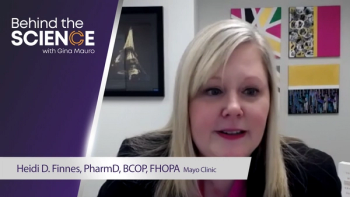
Pharmaceutical experts answer the question: What has been a profound innovation in the pharmaceutical industry that was influenced by the pandemic?
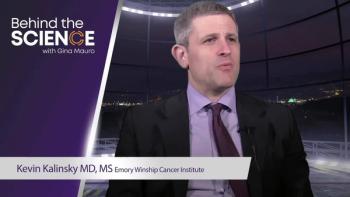
Experts highlight their biggest takeaways from presentations at the 40th Annual Miami Breast Cancer Conference.

In honor of Endometriosis Awareness Month in March, Rachael Cullifer, MD, sat down to discuss the most common misconceptions about the disease, clinical pearls for diagnosis and management, and the importance of listening to your patients, especially when it comes to endometriosis.
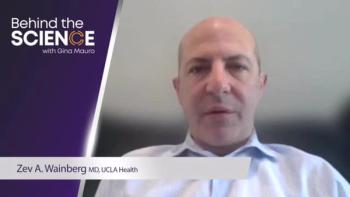
During the 2023 ASCO Gastrointestinal Cancers Symposium, Targeted Oncology spoke with Dr. Rachna Schroff, David O’Malley, Benjamin Schlechter, Zev Wainberg, Laura Dawson, and more about exciting clinical trials in gastrointestinal cancers.

Gregory Day, MD, MSc, MSCI, FAAN, is the lead investigator in the ExTINGUISH trial, a neurologist at Mayo Clinic in Jacksonville Florida and is also a behavioral neurologist by training with an additional focus in a typical presentation to dementia and including patients with memory and thinking problems after autoimmune encephalitis or that present inflammatory causes of dementia and cognitive impairment.

There are several challenges in cannabis testing, which can make it difficult to ensure accurate and reliable results. Some of these challenges range from regulatory inconsistencies between states and countries, making it difficult to establish consistent testing standards; complex chemistry and subsequent analysis; sample variability; lack of standardized methods; contamination; and limited research. Here, several analytical chemistry experts weigh in on what they believe are the biggest challenges facing the cannabis testing world.
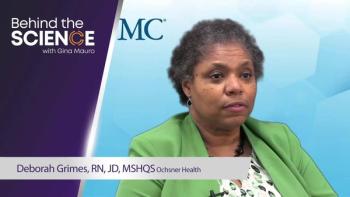
Experts sit down to discuss what health inequity they each feel is being overlooked when it comes to population health policy initiatives in the United States.
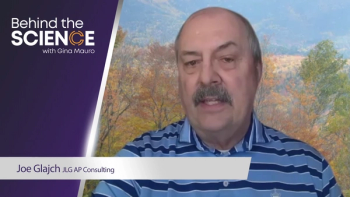
Five analytical chemists offer their views about the most important skills or knowledge that analytical chemists need to be successful in the field.

Reanne Booker, MN, NP, nurse practitioner with the palliative and end of life care services program at the Foothills Medical Centre at Alberta Health Services in Calgary, Alberta, as well as a PhD candidate at the University of Victoria in British Columbia, shares how nurses can increase patient understanding on the role of palliative care in oncology.

Rachel Pope, MD, MPH, discusses stigmas surrounding women’s sexual health, how these stigmas originated, and the urologist’s role in addressing them with patients.
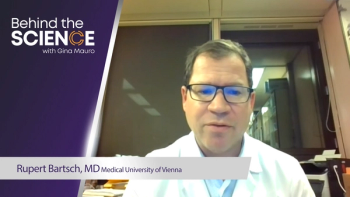
Experts highlight their biggest takeaways and the most exciting data from the 2022 San Antonio Breast Cancer Symposium.

Real-world data—coming from EMRs, medical insurance claims, prescription data, or any data that can provide insights about patients and their relationship to the healthcare system—is increasingly being used in clinical trials and in drug outcomes measurement to inform processes in the development-to-market chain, which ultimately will improve clinical care for patients. We recently asked these experts, “In your opinion, what is the most exciting use for real-world data in drug development?”

Winter months can wreak havoc on skin. The dryness related to dry, outdoor air and indoor heating, can rob skin of its natural moisture. Symptoms of eczema and atopic dermatitis can be exasperated this time of year. Doctor Bernard Cohen, professor of pediatrics and dermatology at John Hopkins University School of Medicine in Baltimore talks to Dermatology Times senior editor, Carrie Nagorka, about how parents can help relieve some of those winter flare-ups in children.
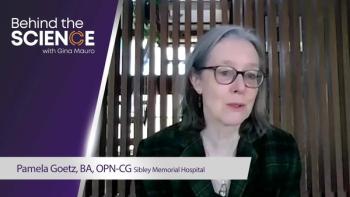
Several multidisciplinary leaders in the field of cancer, from a social worker to an oncology survivorship, navigator share their respective insights on the current state of cancer care.

Cases of advanced prostate cancer are increasing for the first time in 20 years, according to new data from the Cancer Statistics, 2023 report released by The American Cancer Society. In this video, urologists Michael S. Cookson, MD, MMHC; Andres Correa, MD; Derek J. Lomas, MD, PharmD; and Jonathan E. Shoag, MD, react to the findings.
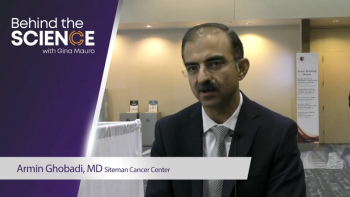
At the 64th American Society of Hematology Annual Meeting, the CGTLive team caught up with experts in the clinical care of patients who are receiving cell and gene treatments. A variety of data were presented on the latest advances in CAR-T therapies that are being evaluated for different patient populations. Specifically, they offered insight into the trends they’ve observed in the development of these treatments, the needs that are lingering where progress has been made, and much more.
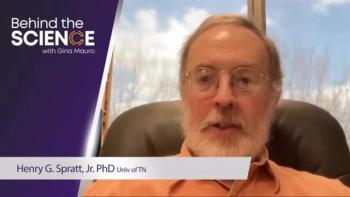
What is the biggest challenge in infection prevention and control worldwide? Infection Control Today® spoke with key opinion leaders to find out.

A group of key opinion leaders in cardiometabolic health react to the question: Should statin use be expanded to a primordial prevention role?

Respiratory syncytial virus (RSV) is a common respiratory virus that typically causes mild, cold-like symptoms. However, this season we’ve seen an unprecedented number of severe RSV cases in young children and older adults. Dr. Tina Tan joins Deep Dive to explain why this year’s RSV is so early and deadly, as well as to discuss the most promising candidates in the race to the first-ever RSV vaccine.
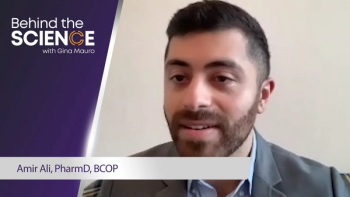
Experts discuss the latest developments in multiple myeloma, including when to classify patients as high-risk, the treatment paradigm, and new developments on the horizon.

Phillip S. Low, PhD, discusses the recent approval of pafolacianine for patients with lung cancer. Low, the pioneer behind this imaging agent talked about how this can be of great importance for patients in this population. Additionally, he reviewed how doctors can begin to implement this into practice to best help find and detect cancerous lesions.

Lisa Hunter Romanelli, PhD, discusses steps made to combat the mental health crisis declared over 1 year ago by the American Academy of Pediatrics. This discussion includes how COVID-19 exasperated mental health issues in children, but a mental health crisis was already present before the start of the pandemic. While more needs to be done, individual providers can support children by learning how to diagnose and treat mental health issues.

Jeff Andrews, MD, details why it’s important to get regular tests and screenings for cervical cancer.
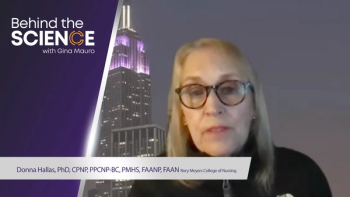
The 2022-2023 winter respiratory season has hit hard, with flu experiencing a surge earlier than is typically seen. To take the pulse of where we are this flu season and what can be done to help prevent the spread, we reached out to 3 health care providers.
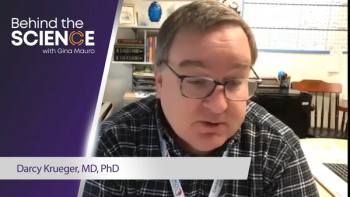
Initiated in October 2021, TSC Steps is a phase 1/2 study that is the first of its kind to evaluate a targeted, disease-modifying therapy for preventing or delaying seizure onset in tuberous sclerosis complex (TSC) using a mechanism based approach. Led by Darcy Krueger, MD, PhD, the study use TAVT-18, a novel formulation of sirolimus (Ramapune; Pfizer), an FDA-approved medication for TSC that aims to regulate the target of rapamycin signaling pathway. This discussion talks about how sirolimus had been previously used and the nuances with treatment decisions.

Heather Jackson, PhD, FNP-BC, NEA-BC, FAANP, discusses how integrative therapies can be applied in oncology, underscoring a specific case study with a patient who benefited from acupuncture.